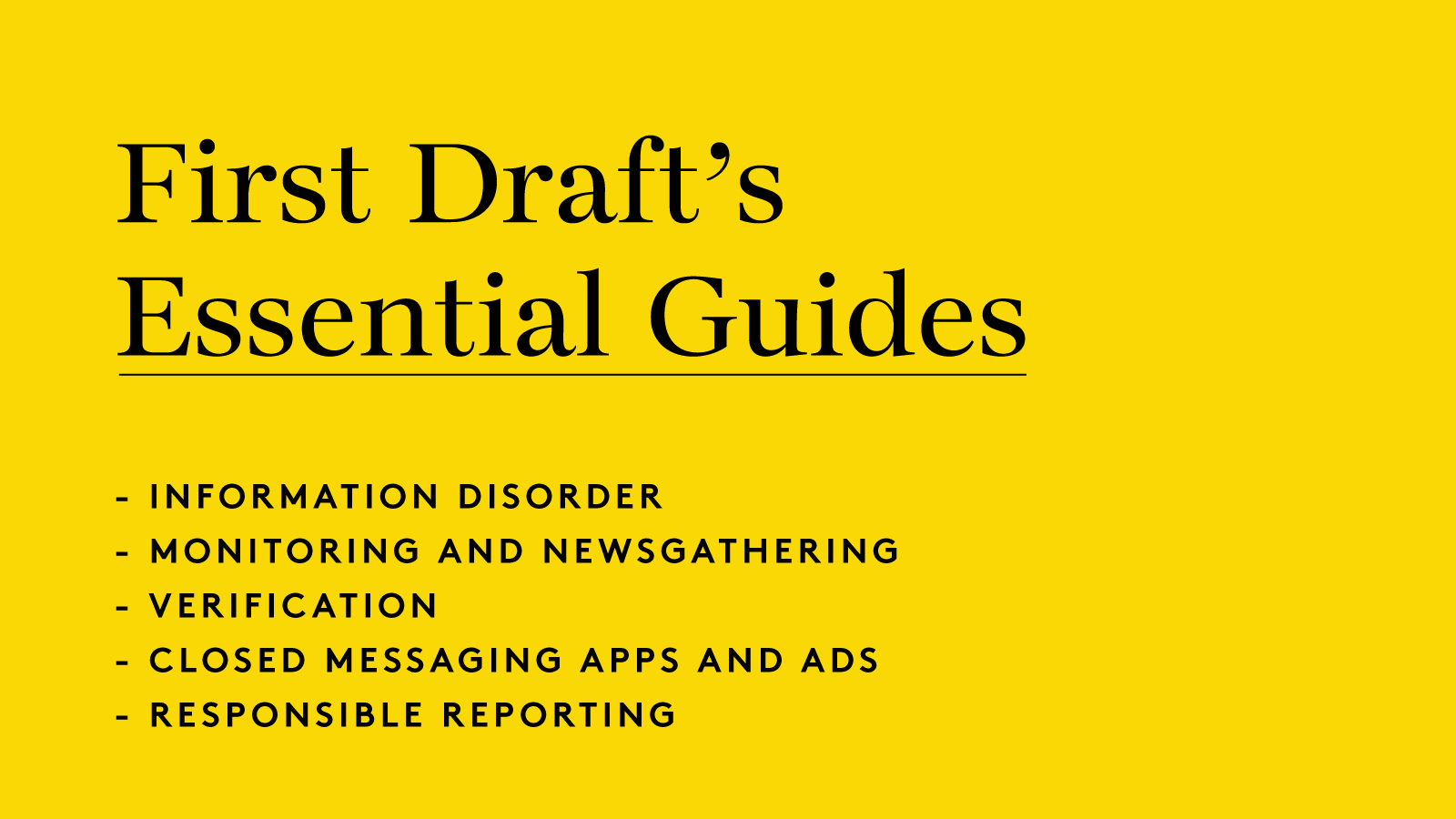
Covering newsgathering, verification, responsible reporting, online safety, digital ads and more, each book is intended as a starting point for exploring the challenges of digital journalism in the modern age. They are also supporting materials for our new CrossCheck initiative, fostering collaboration between journalists around the world.
We live in an age of information disorder. The promise of the digital age encouraged us to believe that only positive changes would come when we lived in hyper-connected communities able to access any information we needed with a click or a swipe. But this idealised vision has been swiftly replaced by a recognition that our information ecosystem is now dangerously polluted and is dividing rather than connecting us.
To help map this new landscape, we explain our framework of 7 types of mis- and disinformation in detail in our Essential Guide to Understanding Information Disorder. We also provide examples that underline how damaging information disorder has been in the context of elections and breaking-news events around the world.
Regardless of your beat or area of focus, understanding how to use the social web to discover, monitor and research stories is an essential skill.
It allows you to find sources, monitor conversations, understand behaviours, track events and find the issues that affect a community. But you have to know where, when and how to look online.
In this Essential Guide we highlight the best free tools and techniques in newsgathering (active search) and monitoring (passive search). We also look at the best practices and applications across major platforms and online services so that you can effectively surface the most useful content for your reporting and research.
Verification of online content can be intimidating, but it is not difficult.
Being good at verification is mostly about repetition, persistence and using digital investigative tools with a little creativity. There are so many verification tricks and tools available now. In fact, the hardest part might be remembering all of the resources at your disposal.
That’s where this Essential Guide comes in. This is your little condensed guide to the wizardry of verification. It includes essential concepts, checklists and our favourite tips and techniques. Most importantly, it will introduce you to the five pillars of verification, and serve as a quick reference for how to tackle each one.
What does responsible reporting mean in an age of information disorder?
Many newsrooms rely on their editorial guidelines and code of ethics. Report the truth. Get the facts right. Be independent and impartial. Be transparent with your sources. Own up to your mistakes and issue prompt corrections.
These fundamentals are still the bedrock of journalism. But as audiences become hyper-networked, technological innovations have expanded the ways in which news can be gathered and distributed. In response, agents of disinformation have devised increasingly inventive methods for manipulating journalists, the social platforms, and the subsequent media coverage. As a result, news organisations find themselves facing an array of new ethical challenges relating specifically to amplification.
This Essential Guide is not designed to give you all the answers to the ethical challenges you will face. What it will do, however, is provide you with questions you can ask as you navigate the tricky ethical terrain that comes with reporting in a world of information disorder. We recommend taking some of the questions laid out in this guide and using them to spark discussions in your newsroom about best practices for reporting on this type of content.
Information disorder has new battlegrounds: advertising, closed groups and messaging apps. More and more malicious actors are using these spaces and indirect strategies to hide their activity or reach new audiences.
The truth is that these spaces were always fertile for information campaigns, but we are only now beginning to get a grip on how to monitor them. In this Essential Guide you will find our introductory analysis of the ads libraries on the main social platforms and how to navigate them. You can learn more about the different types of Facebook groups and how to understand them. The guide also offers insight on how to use closed messaging apps like Telegram, WhatsApp or Discord for reporting and offers a set of questions to understand the wider ethical background when investigating those dark spaces.
Covering newsgathering, verification, responsible reporting, online safety, digital ads and more, each book is intended as a starting point for exploring the challenges of digital journalism in the modern age. They are also supporting materials for our new CrossCheck initiative, fostering collaboration between journalists around the world.